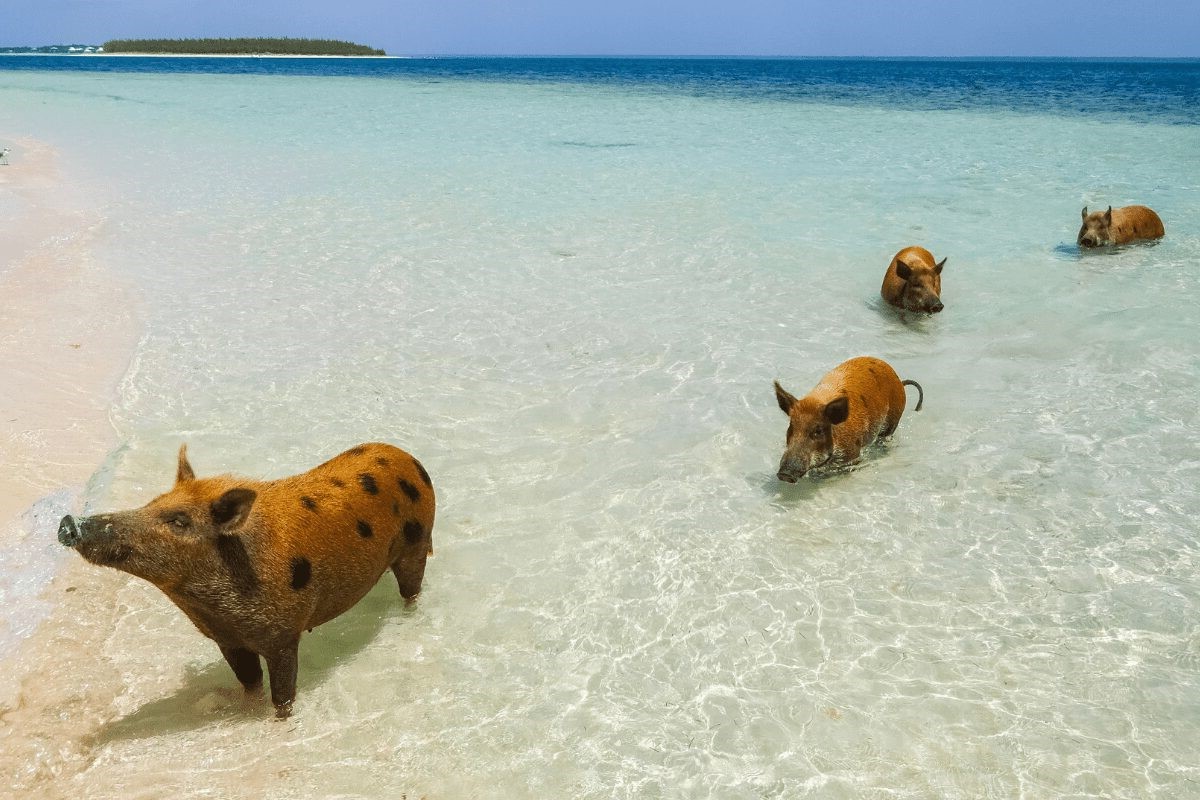
Ever wondered what makes the Bahamas stand out in the Caribbean? Bahamas isn't just about sun-drenched beaches and crystal-clear waters; it's a treasure chest brimming with intriguing secrets and tales. From swimming pigs to the world's third-largest wine cellar, this archipelago is full of surprises that go beyond the usual tourist spots. So, why do these islands captivate the hearts of travelers worldwide? Is it the rich history, the vibrant culture, or the unique natural wonders that you won't find anywhere else? Let's dive into 15 fun facts about the Bahamas that might just make you see this tropical paradise in a whole new light. Whether you're a trivia buff, a history enthusiast, or simply in love with the Caribbean, these tidbits will surely add a dash of excitement to your knowledge of the Bahamas.
Key Takeaways:
- The Bahamas is more than just beautiful beaches; it's a treasure trove of history, culture, and natural wonders waiting to be explored beyond the typical tourist experience.
- From swimming pigs to vibrant festivals, the Bahamas offers a unique blend of cuisine, conservation efforts, and economic insights, making it a fascinating destination for travelers and nature enthusiasts alike.
Discovering the Bahamas: More Than Just Beaches
When most people think about the Bahamas, images of pristine beaches and crystal-clear waters come to mind. However, this archipelago nation has much more to offer than just its stunning coastline. From its rich history to unique natural phenomena, the Bahamas is full of surprises that extend beyond the typical tourist experience.
-
The Bahamas is an archipelago of over 700 islands and cays, but only about 30 are inhabited. This means there's a whole lot of unexplored territory, offering secluded spots for adventurers.
-
Nassau, the capital city, is located on New Providence Island, one of the most populated and visited islands in the Bahamas. It's known for its vibrant culture, history, and bustling markets.
A Dive into History and Culture
The Bahamas has a colorful history, influenced by British, Spanish, and African cultures. This blend has created a unique Bahamian identity, evident in the country's festivals, music, and art.
-
The Bahamas gained independence from Britain on July 10, 1973. Before that, it was a British colony for over 300 years. Independence Day is now one of the nation's most celebrated holidays.
-
Junkanoo is a traditional Bahamian festival that takes place on Boxing Day (December 26) and New Year's Day. It features vibrant parades with elaborate costumes, music, and dancing, showcasing the rich cultural heritage of the islands.
Natural Wonders of the Bahamas
Beyond its cultural attractions, the Bahamas is home to some of the world's most breathtaking natural wonders.
-
The Great Bahama Bank is one of the largest underwater limestone platforms in the world, creating the Bahamas' famous clear blue waters and spectacular marine life.
-
The Bahamas is home to the world's third-largest barrier reef, offering some of the best snorkeling and diving experiences.
-
Pig Beach on Big Major Cay is an uninhabited island famous for its swimming pigs. No one knows exactly how the pigs got there, but they've become a major tourist attraction.
Unique Bahamian Cuisine
Bahamian cuisine is a delicious blend of flavors, with seafood playing a central role in many dishes.
-
Conch, a type of shellfish, is a staple in the Bahamian diet. It's served in various ways, from fried to marinated in salads.
-
The Bahamas is known for its rum, with distilleries on several islands producing the spirit. Bahama Mama, a cocktail made with rum, coconut, and pineapple juice, is a local favorite.
Conservation Efforts and Sustainability
The Bahamas is not just about tourism; it's also at the forefront of conservation efforts to protect its natural beauty.
-
The Exuma Cays Land and Sea Park is the first of its kind in the world, a protected area where no fishing, shelling, or anchoring is allowed, preserving its pristine condition.
-
Efforts are underway to protect the endangered Bahama Parrot, found only in the Bahamas, particularly on the islands of Abaco and Great Inagua.
Economic Insights
The economy of the Bahamas is heavily reliant on tourism and banking.
-
Tourism accounts for more than 60% of the Bahamian GDP and employs about half of the country's workforce.
-
The Bahamas is considered a tax haven due to its no income tax policy, attracting businesses and wealthy individuals from around the globe.
A Hub for Sports and Leisure
The Bahamas is not just a place for relaxation; it's also a destination for sports enthusiasts.
A Glimpse into the Bahamas' Hidden Gems
Diving into the heart of the Bahamas reveals more than just its crystal-clear waters and sun-kissed beaches. This archipelago is a treasure chest of culture, history, and natural wonders. From the world's third-largest barrier reef to the mystery of the blue holes, each fact about the Bahamas adds a layer of intrigue to its already captivating allure. Celebrating Junkanoo, understanding the significance of the flamingo, and acknowledging the islands' role in space exploration enriches our appreciation for this paradise. Whether you're a trivia buff, a nature lover, or someone dreaming of their next vacation destination, the Bahamas offers a little something for everyone. So, next time you think of this island nation, remember, it's not just a place for relaxation but a hub of fascinating tales and discoveries waiting to be explored.
Frequently Asked Questions
Was this page helpful?
Our commitment to delivering trustworthy and engaging content is at the heart of what we do. Each fact on our site is contributed by real users like you, bringing a wealth of diverse insights and information. To ensure the highest standards of accuracy and reliability, our dedicated editors meticulously review each submission. This process guarantees that the facts we share are not only fascinating but also credible. Trust in our commitment to quality and authenticity as you explore and learn with us.


